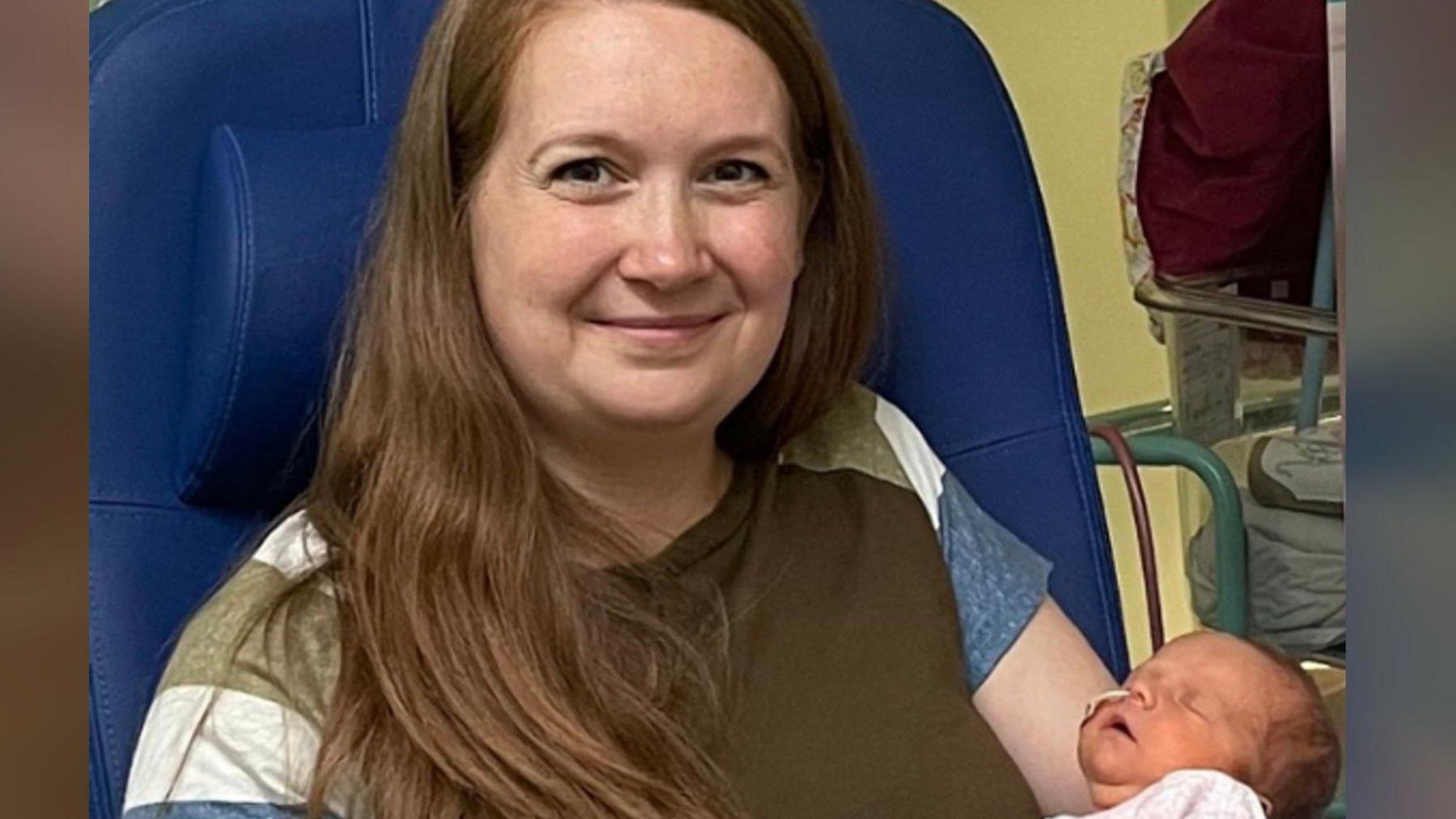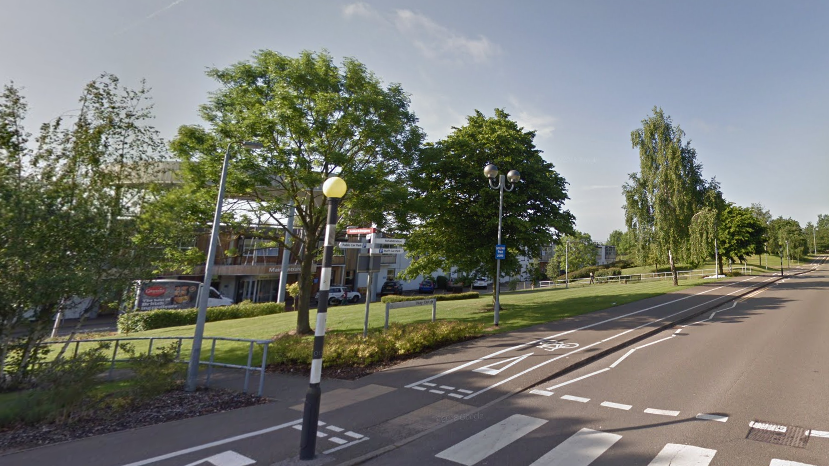Hospital recruits five tiny babies for feeding study

Mum Kate whose daughter Sophie was the first patient on the trail at Hinchingbrooke Hospital said "it's been great to do something positive"
- Published
An NHS hospital celebrated recruiting five patients to a international study looking at how babies born up to six weeks early were fed through tubes.
Staff at the Special Care Baby Unit at Hinchingbrooke Hospital in Huntingdon, had joined up to NeoGASTRIC, external's trial, which had been running for more than a year, in the UK and Australia.
Katie, whose daughter Sophie was the first patient to be recruited at the site, said it was “important to better understand how these tiny babies feed and learn to feed as they continue to develop”.
Tracy James, lead nurse of the Special Care Baby Unit, said the study would have a “real positive impact on neonatal care”.

Hinchingbrooke Hospital is celebrating a milestone with the neonatal trail
NeoGASTRIC, external is testing to see if routinely measuring gastric residual volumes - checking what is in the stomach before feeding - would affects babies reaching full feeds more quickly.
It aimed to recruit more than 7,000 babies across the UK and Australia before 2026.
The study was funded and supported in the UK by the National Institute for Health and Care Research (NIHR) and was coordinated by the National Perinatal Epidemiology Unit, Clinical Trials Unit (NPEU CTU) at the University of Oxford, in partnership with Monash University, Australia.
Peterborough City Hospital, also part of North West Anglia NHS Foundation Trust, recently celebrated successfully recruiting 50 babies to the study.
Katie said: “It’s been great to be part of this neonatal study, and do something positive, following the early arrival of Sophie.
“I feel it’s important we better understand how these tiny babies feed and learn to feed as they continue to develop and become strong enough to feed independently and would encourage anyone else in our position to consider doing the same.”
Mr James said: “It’s always exciting to be part of a research project and the conclusions from this study will have a real positive impact on neonatal care.
“We hope to be able to participate in future studies and help contribute to worldwide research.”
Get in touch
Do you have a story suggestion for Peterborough?
Follow Peterborough news on BBC Sounds, Facebook, external, Instagram, external and X, external.